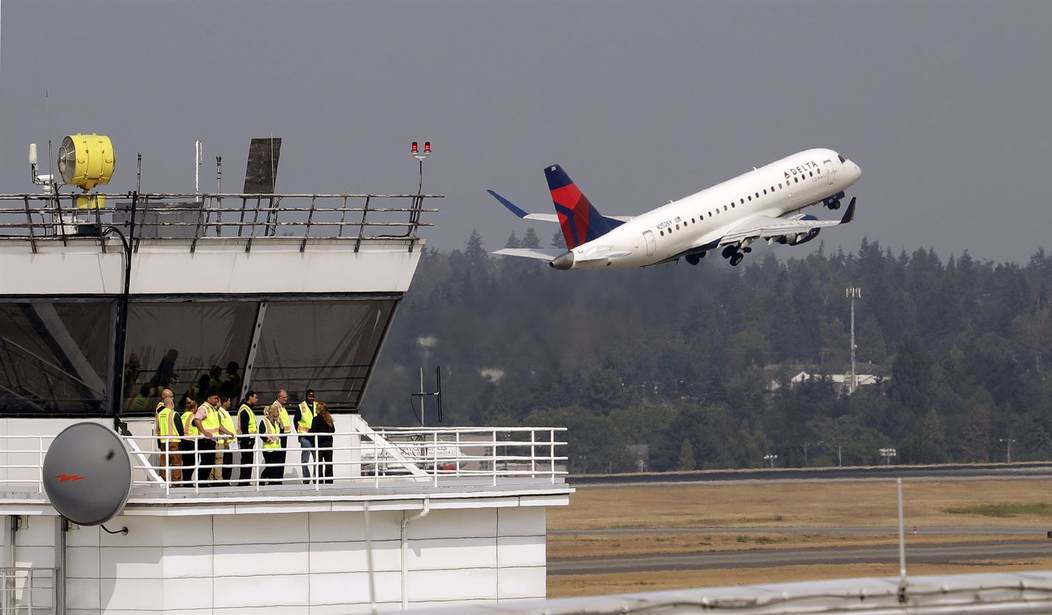Airline deregulation has been one of the great consumer welfare successes of the last half-century. Thanks to a push by consumer and market advocates alike during the Carter administration, Congress succeeded in passing comprehensive reform that allowed airlines to set their own prices, services, and destinations. The result was massive decreases in airfare rates and a drastic increase in competitors in the air travel industry. Yet despite this overwhelming success, proposals abound that would take America back to the days of thousand-dollar airline tickets.
There are few American traditions as timeless as complaining about the airline industry. The loss of complimentary meals, added bag fees, and shrinking legroom provides travelers with ample fodder for grousing. As the great philosopher Jerry Seinfeld once mused, “what’s the deal with airline food?” But the idea that limiting competition and heavily regulating airlines could restore those perks without skyrocketing ticket prices and putting air travel out of reach for most Americans is comedic.
Most Americans prefer the system just as it is, but that's coming under a new line of attack that would shrink consumer choice and increase ticket prices. The superiority of the current system is revealed by the fact that when most of us buy a plane ticket for personal travel, we buy an economy ticket, not a first class ticket. After all, first class offers travelers the full pre-deregulation air travel experience — tons of room, excellent food, and, most importantly, far higher prices. Most flyers would prefer to pay less for a less comfortable experience (though they reserve the right to complain!)
Because of airline deregulation, we have that option. Pre-deregulation, travelers wore their Sunday best to flights that had a special, fun vibe. Now, sweatpants and t-shirts are customary for an experience that feels like a glorified bus ride with a bonus TSA pat-down. That’s because, to most of us, the comfort and glamour of first-class is not worth the 70 percent increase to fare prices. Travelers say they want the perks of the past, but when it comes time to pay for the ticket, most buy the cheapest option available, even if the in-flight meal tastes like rubber. Those who truly do want the experience of first-class pay for it.
Recommended
And the connection between diminishing perks and lower fare prices is no coincidence. Since deregulation occurred in the late 1970s, the average round-trip fare has dropped 45 percent from $615 in 1979 to $340 in 2018. Where air travel was once the means of transportation of the elite, today nearly 90 percent of Americans have flown at least once in their lives.
All this has occurred because competition between airlines has led to cost-cutting —for the benefit of travelers. Rather than eliminating the perks of air travel, airlines have simply made the costs of those perks visible and optional instead of baking them into the base ticket fare — because for most travelers, the base fare is the most important thing.
Government-facilitated monopolies in the name of eliminating “duplication” have a checkered history, at best, elsewhere in American life. Consider the federal government’s challenges with creating and later breaking up telephone monopolies, or the ongoing problems with regulated monopoly electricity providers. The model of enforcing a monopoly and minimizing competition is much more likely to result in price hikes and reduced innovation than to achieve any of the “efficiencies” that some new pro-regulation advocates are dreaming of.
The continued attacks on airline deregulation are bizarre considering the recent decades of increased competition, lower costs, and more convenience for airline travelers. Consumer welfare advocates should instead embrace airline deregulation as a blueprint for how consumers can be empowered in other areas of the economy.

























Join the conversation as a VIP Member